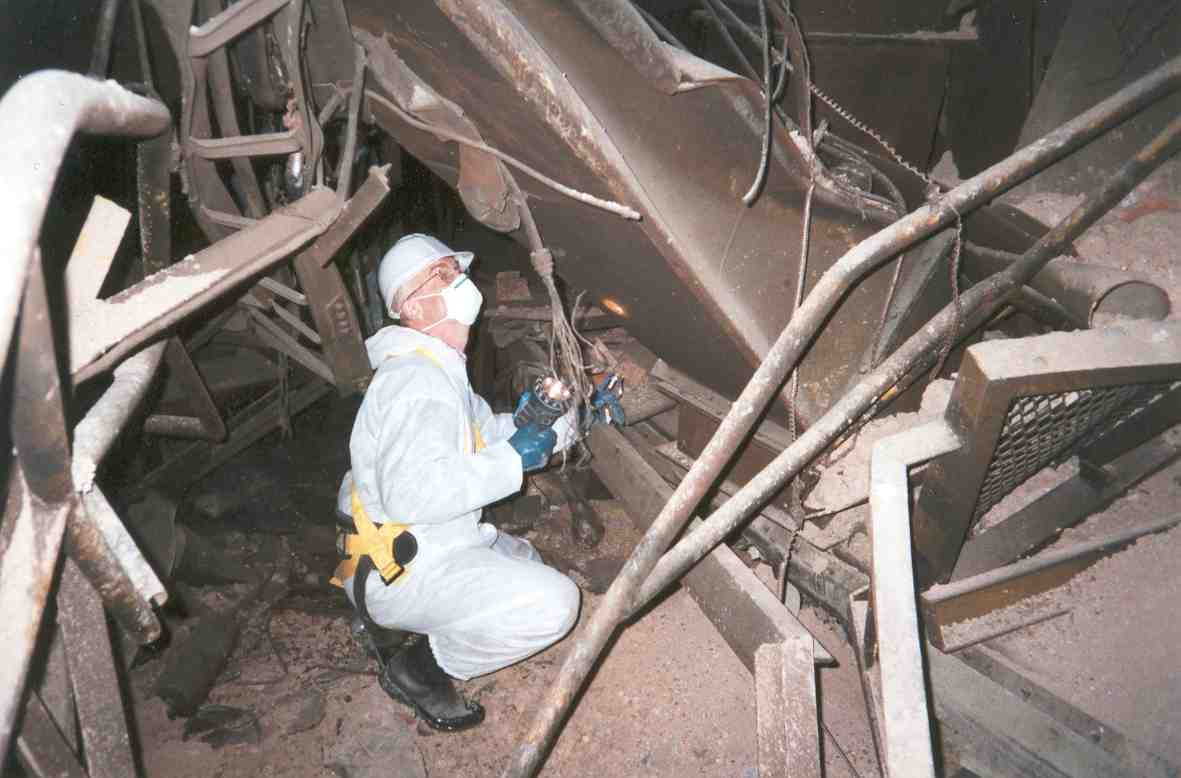How do you describe your job when you meet people at a party?
I tell them I deal with insurance claims and surveys for large engineering projects: power stations, motorways under construction, underground railways. Claims involve anything where there’s been a disaster. There’s two parts to my job: Part one, I look at damage that’s occurred, why it happened, and the cost to repair it. I analyze it and find out whether it’s insured under an insurance policy. Part two, I look at large projects while they’re being built and try to advise the insurers and people building to minimize the chance of a disaster
What is ‘cutting-edge’ about your work?
My department developed a simple way for people to manage their risks, especially complicated risks. For big engineering projects, it’s difficult to determine what risks you take from the onset. We created a spreadsheet based system that people can use in a simple way that allows them to make a solid assessment of the risks their operation has. We helped de-mystify and simplify the process.
Describe briefly how your career has progressed to date.
I have had a fairly unconventional career path which is not just straightforward civil engineering. Having started as a civil/water engineer, I then got a legal arbitration qualification to help me deal with contracts. I also got involved in starting up a new loss adjusting company. Now I deal with risk surveys, claims and risk consultancy which mixes science, engineering, insurance and law. All in all, I have 20+ years experience of the technical, legal and insurance worlds and I’ve had consultancy assignments in the UK and all over the world (Europe, North America, Middle East, Scandinavia, Asia, and Africa)
How is your job cross-disciplinary?
I deal with lots of different types of engineers and great specialists in their field – chemical, electrical, mechanical engineers… the list goes on. I also work with architects, surveyors, lawyers and accountants and insurers… lots of different professions. A big part of my job is to explain something technical in a simple way to people who are not technical. I look at something which I understand and figure out how to explain it to someone who is not a technical expert.
How well is your job compensated? What is the starting salary for your field, and how much can this be expected to rise?
The starting salary for my line of work ranges from £25-35K a year. This will then increase depending on how much someone can add to their initial training. At my company, if someone has a science or engineering degree in one particular discipline, we’d want them to add knowledge to it (i.e. insurance). They are expected to study at the same time as working but there are aspects of the job you can only learn through practical experience. To become an expert in demand it takes a long time. You have to be able to show that you have training and qualifications and expertise plus building up a reputation with clients. If you make a mistake it can cost a great deal of money. Your salary starts to rise when you are really competent and working well. At my company, normally we want people to have practical experience and look to take on people out of industry
What’s the most unexpected thing about your job?
My job is interesting and a bit scary, especially when I’m propelled into a disaster zone, which has happened a few times. We deal with large insurance claims. So, for example, when there was a massive terrorist attack in Sri Lanka and a huge bomb went off in the city, many were on their way out of the country except I was on the first plane in. Another time, it was when a massive hurricane hit in the Caribbean. I was sent to sort out claims and had to deal with people who were in great distress. Most of the time I work with companies, but if a big disaster strikes (i.e. hurricane, earthquake) then I’m often dealing with individuals. I remember meeting a lady where there was nothing left of her house…it had completely blown away which was very shocking.

